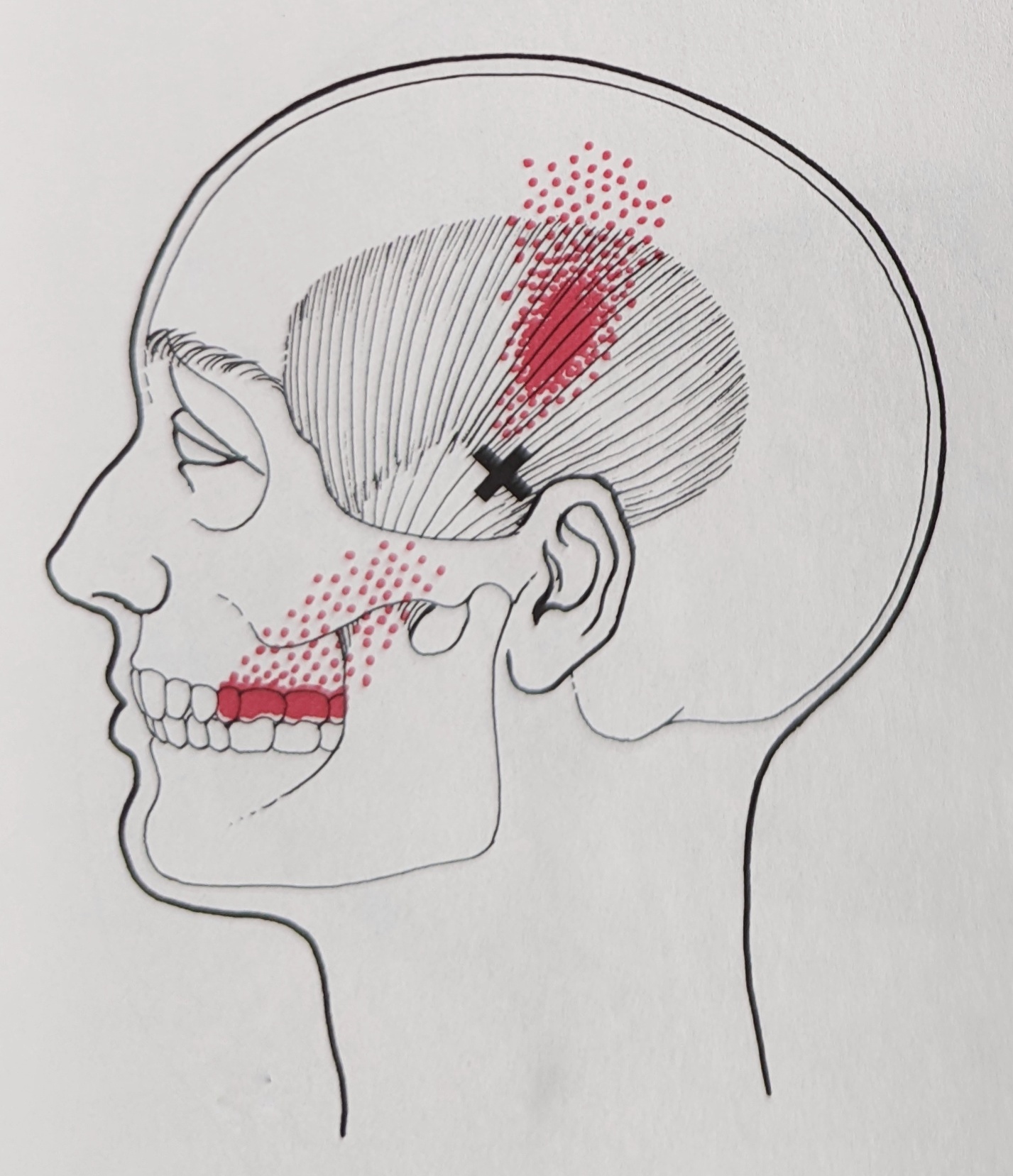 Nocturnal teeth grinding is often behind TMJD – temporomandibular joint dysfunction. The muscles attached to the mandible – the jaw – become too tight, sometimes more on one side than the other. This causes the jaw to close incorrectly. The resulting irritation in turn causes night time grinding, or bruxism, which worsens the muscle tension. It soon becomes a vicious cycle which can result in the jaw joint clicking and popping. Then ligamental inflammation, jaw pain, and tension headaches develop. Hopefully, I can treat a patient before it progresses this far. Sometimes it’s this bad by the time they find me. Fortunately we can still fix it!
Nocturnal teeth grinding is often behind TMJD – temporomandibular joint dysfunction. The muscles attached to the mandible – the jaw – become too tight, sometimes more on one side than the other. This causes the jaw to close incorrectly. The resulting irritation in turn causes night time grinding, or bruxism, which worsens the muscle tension. It soon becomes a vicious cycle which can result in the jaw joint clicking and popping. Then ligamental inflammation, jaw pain, and tension headaches develop. Hopefully, I can treat a patient before it progresses this far. Sometimes it’s this bad by the time they find me. Fortunately we can still fix it!First, do not allow the dentist to adjust the bite surfaces of your teeth. It is paramount to correct the muscular imbalance beforehand. If they do so, then as the muscles continue to tighten, the bite continues to change. The dentist will want to keep filing or amending to “even things up”. After that, if and when the muscles finally relax, the teeth will no longer match up properly, perpetuating the irritation that leads to grinding. The problem then becomes more difficult to resolve,
Secondly, choose a dentist who knows to correct nocturnal teeth grinding with a night guard for the LOWER teeth. The upper teeth act as a fulcrum and a properly constructed lower night guard will help the jaw sit in the proper position against the uppers. The guard also protects bite surfaces from wearing unevenly and making the problem worse while you get the grinding under control.
Finally, schedule some sessions of myofascial trigger point therapy for your head and jaw muscles to get your jaw relaxed and pain free. I can treat you in my office, and show you some exercises to do at home. You can learn to prevent and control TMJD, taking muscle imbalance out of the equation. Your dentist will then have a clear picture of what dental work your teeth actually need.